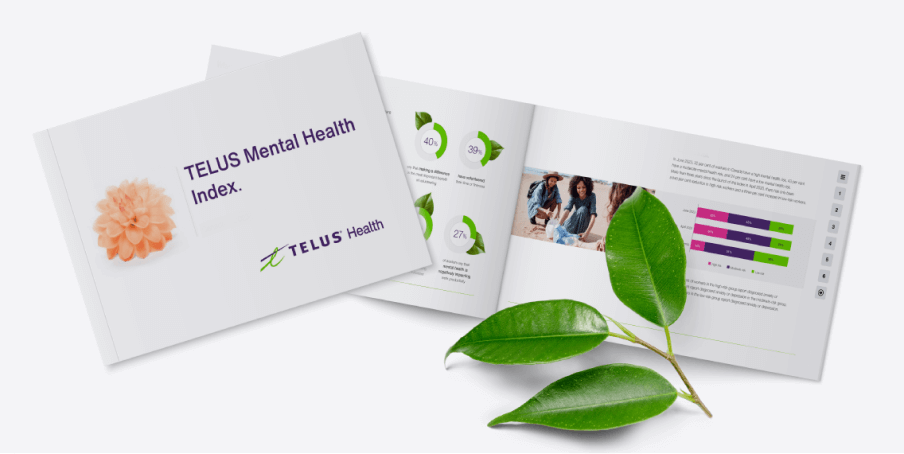Tail wagging memories that last a lifetime
Scarlet, pup to team member Liisa Dogs get a few summers with us, and we want to make the most of...
 TELUS Mental Health Index
The mental health and wellbeing of your workforce is critical when it comes to overall health – and productivity at work.
Our recurring reports measure both and provide insights into issues that make a difference to them.
Explore and subscribe today
TELUS Mental Health Index
The mental health and wellbeing of your workforce is critical when it comes to overall health – and productivity at work.
Our recurring reports measure both and provide insights into issues that make a difference to them.
Explore and subscribe today